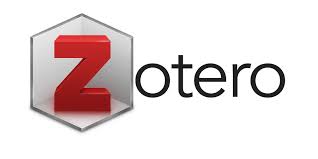Aktivitas Fundamental Matematis pada Kerajinan Wayang Kulit dan Aplikasinya dalam Pembelajaran Matematika
DOI:
https://doi.org/10.29240/ja.v4i2.5515Keywords:
Ethnomathematics, Fundamental mathematical activity, Puppet, Mathematics learningAbstract
Mathematics is considered a difficult and boring subject because it involves numbers, symbols, and formulas. The use of culture associated with mathematics will provide new experiences for students in learning mathematics so that it will not cause boredom. The fundamental mathematical aspect that will be observed is the motif and the process by which puppets are made. The purpose of this research to describe fundamental mathematical activity according to Bishop on the shadow puppets craft. The type of research was descriptive qualitative with ethnographic approach. The data collection method that used were interviews, observations, documentation, and references. This research show that mathematics aspect of the shadow puppet craft according to Bishop: (1) counting include a long time of manufacture, number of puppets, number of tools and materials; (2) locating included the division of land, boundaries, placement of motifs; (3) measuring included fat content, calculation size and weight of the device, symmetrical motif size, color mix ratio, gradation level; (4) designing incuded the shapes of tools and materials, sketching, motifs, lines; (5) playing induded the steps and process production; and (6) explaining included the meaning of motifs, the use of tatah, and the application of color. In addition, the fundamental aspects of mathematics in the process of making puppets can be implemented in junior high schools in the form of questions.
Downloads
References
Abdullah, A. A. And Rahmawi, A. Y. (2021) ‘Eksplorasi Etnomatematika pada Batik Kayu Krebet Bantul’, UNION: Jurnal Pendidikan Matematika, 9(2), pp. 163–172. doi: 10.33474/jpm.v7i1.4985.
Abdullah, A. A. (2020) ‘Etnomatematika; Eksplorasi Transformasi Geometri Pada Ragam Hias Cagar Budaya Khas Yogyakarta’, Jurnal Ilmiah Soulmath : Jurnal Edukasi Pendidikan Matematika, 8(2), p. 131. doi: 10.25139/smj.v8i2.3107.
Abdullah, A. A. et al. (2022) ‘The Use of Ethnomathematics Learning Media Based on Augmented Reality for Madrasah Students’, AL-ISHLAH: Jurnal Pendidikan, 14(1), pp. 877–886. doi: 10.35445/alishlah.v14i1.1140.
Abi, A. M. (2017) ‘Integrasi Etnomatematika Dalam Kurikulum Matematika Sekolah’, JPMI (Jurnal Pendidikan Matematika Indonesia), 1(1), p. 1. doi: 10.26737/jpmi.v1i1.75.
Amalia, N. A. and Agustin, D. (2022) ‘Peranan Pusat Seni dan Budaya sebagai Bentuk Upaya Pelestarian Budaya Lokal’, Sinektika: Jurnal Arsitektur, 19(1), pp. 34–40. doi: 10.23917/sinektika.v19i1.13707.
Anjarwati, S. et al. (2021) ‘Eksplorasi Etnomatsains pada Lumpia Semarang serta Implikasi dalam Pembelajaran Matematika dan Sains’, PENDIPA Journal of Science Education, 6(1), pp. 183–192. doi: 10.33369/pendipa.6.1.183-192.
Bakhrodin, Istiqomah, U. and Abdullah, A. A. (2019) ‘Identifikasi Etnomatematika pada Masjid Mataram Kotagede Yogyakarta’, Soulmath;Jurnal Ilmiah Edukasi Matematika, 7(2), pp. 113–124.
Filiestianto, G. and Al-Jabar, S. Z. (2022) ‘Eksplorasi Etnomatematika Rumah Panggung Betawi Si Pitung Dalam Pandangan Aktivitas Fundamental Matematis Bishop’, JPMI (Jurnal Pembelajaran …, 5(4), pp. 1197–1208. doi: 10.22460/jpmi.v5i4.1197-1208.
Firmansyah Nur Muhammad et al. (2021) ‘Dynamics of Home Industry Creatrative Crafts of Wayang Kulit Village Dukuh Dempok Kecamatan Wuluhan Jember District 1995-2018’, Jurnal Historica, 5(1), pp. 37–46. Available at: https://jurnal.unej.ac.id/index.php/JHIS/article/view/23830.
Hidayati, N. and Abdullah, A. A. (2021) ‘Penerapan Model Pembelajaran Contextual Teaching and Learning (CTL) Berbasis Etnomatematika terhadap Kemampuan Pemecahan Masalah Matematika Siswa …’, Jurnal Tadris Matematika, 4(November 2021), pp. 215–224. Available at: http://178.128.61.209/index.php/jtm/article/view/4777%0Ahttp://178.128.61.209/index.php/jtm/article/download/4777/1854.
Jb., M. C. (2017) ‘Spiritualitas Islam Dalam Budaya Wayang Kulit Masyarakat Jawa Dan Sunda’, Jurnal Sosiologi Agama, 9(1), p. 38. doi: 10.14421/jsa.2015.091-03.
Ledi, F., Kusmanto, B. and Agustito, D. (2020) ‘Identifikasi Etnomatematika pada Motif Kain Tenun Sumba Barat’, UNION: Jurnal Ilmiah Pendidikan Matematika, 8(1), p. 87. doi: 10.30738/union.v8i1.5338.
Narulita, D., Mardiyana, M. and Saputro, D. R. S. (2019) ‘Ethnomathematics in Traditional Wayang Performance in Surakarta as a Source of Mathematics Learning in Junior High School’, Budapest International Research and Critics in Linguistics and Education (BirLE) Journal, 2(2), pp. 115–122. doi: 10.33258/birle.v2i2.281.
Nugroho, G. N. (2018) ‘Penanaman Pendidikan Karakter Melalui Pembelajaran Etnomatematika’, Prosiding Seminar Nasional Pendidikan FKIP Universitas Muhammadiyah Cirebon 2018, (April), pp. 193–201.
Priyanto (2017) ‘Desa Wisata Budaya Wayang Kulit Jawa Sebagai Destinasi Wisata Minat Khusus dan Komoditas Pariwisata Indonesia’, Journal of Indonesian Tourism and Policy Studies, 2(1), pp. 43–59. doi: 10.7454/jitps.v2i1.38.
Puspasari, R., Rinawati, A. and Pujisaputra, A. (2021) ‘Pengungkapan Aspek Matematis pada Aktivitas Etnomatematika Produksi Ecoprint di Butik El Hijaaz’, Mosharafa: Jurnal Pendidikan Matematika, 10(3), pp. 379–390. doi: 10.31980/mosharafa.v10i3.851.
Richardo, R. (2017) ‘Peran Ethnomatematika Dalam Penerapan Pembelajaran Matematika Pada Kurikulum 2013’, LITERASI (Jurnal Ilmu Pendidikan), 7(2), p. 118. doi: 10.21927/literasi.2016.7(2).118-125.
Richardo, R., Martyanti, A. and Suhartini (2019) ‘Developing ethnomathematical tasks in the context of yogyakarta to measure critical thinking ability’, Journal of Physics: Conference Series, 1188(1). doi: 10.1088/1742-6596/1188/1/012063.
Rino Richardo (2020) ‘Pembelajaran Matematika Melalui Konteks Islam Nusantara: Sebuah Kajian Etnomatematika di Indonesia’, Jurnal Pendidikan Matematika, 3(1), pp. 86–98. doi: http://dx.doi.org/10.21043/jpm.v2i2.6360.
Risdiyanti, I. and Prahmana, R. C. I. (2018) ‘Etnomatematika: Eksplorasi dalam Permainan Tradisional Jawa’, Journal of Medives : Journal of Mathematics Education IKIP Veteran Semarang, 2(1), p. 1. doi: 10.31331/medives.v2i1.562.
Syarifah, N. D. et all (2022) ‘Efektivitas Penggunaan Media Pembelajaran Wayang Terhadap Motivasi Belajar Siswa Kelas IV SDN 04 Madiun Lor’, Prosiding Konferensi Ilmiah Dsar, 3, pp. 985–990.
Widayati (2016) ‘Penguasaan Konsep Matematika Awal melalui Media Wayang Angka Kontekstual pada TK A’, Jurnal PG-PAUD Trunojoyo: Jurnal Pendidikan dan Pembelajaran Anak Usia Dini, 3(1), pp. 48–55. Available at: https://journal.trunojoyo.ac.id/pgpaudtrunojoyo/article/view/3484.
Widya Pramestika, I. and Suci Apriani, M. (2021) ‘Aktivitas Fundamental Matematis pada Tari Srimpi Pandhèlori’, SJME (Supremum Journal of Mathematics Education), 5(2), pp. 147–161. doi: 10.35706/sjme.v5i2.4789.
Yudanti, E., Satiti, Y. E. J. R. and Angeline, M. I. (2022) ‘Eksplorasi Etnomatematika Terkait Aktivitas Fundamental pada Rumoh Aceh’, Prisma, Prosiding Seminar Nasional Matematika, 5, pp. 234–243.
Downloads
Additional Files
Published
Issue
Section
Citation Check
License
Authors who publish with ARITHMETIC: Academic Journal of Math agree to the following terms:
- Authors retain copyright and grant the journal right of first publication with the work simultaneously licensed under a Creative Commons Attribution-NonCommercial-ShareAlike 4.0 International License (CC BY-NC-SA 4.0) that allows others to share the work with an acknowledgment of the work's authorship and initial publication in this journal.
- Authors are able to enter into separate, additional contractual arrangements for the non-exclusive distribution of the journal's published version of the work (e.g., post it to an institutional repository or publish it in a book), with an acknowledgment of its initial publication in this journal.
- Authors are permitted and encouraged to post their work online (e.g., in institutional repositories or on their website) prior to and during the submission process, as it can lead to productive exchanges, as well as earlier and greater citation of published work (See The Effect of Open Access).







